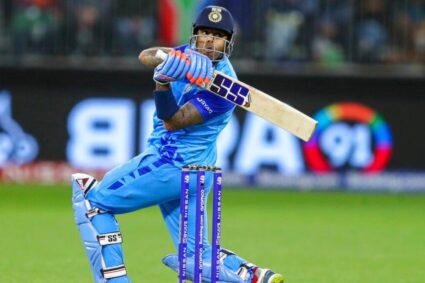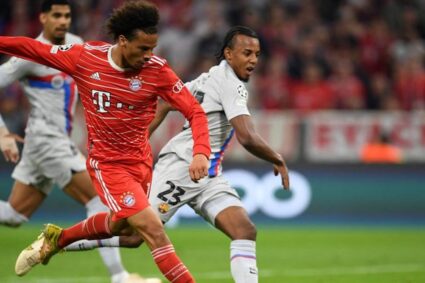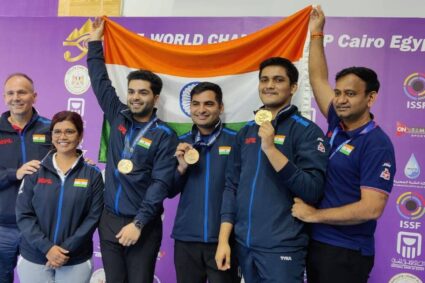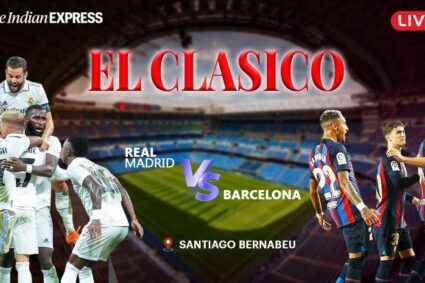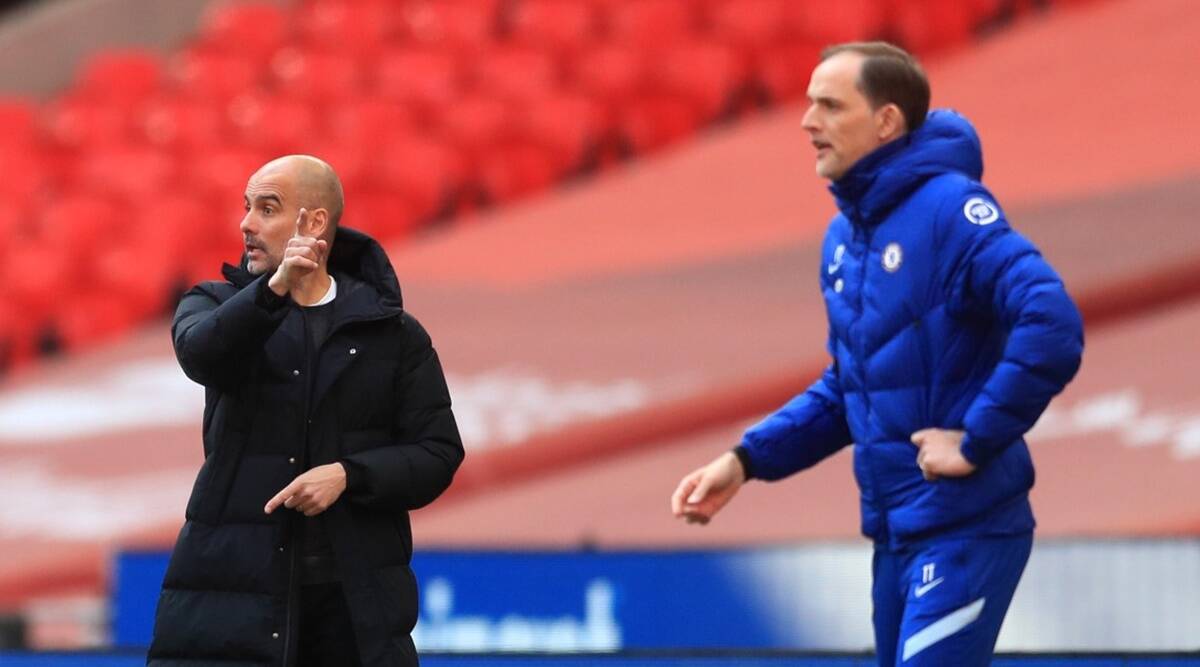
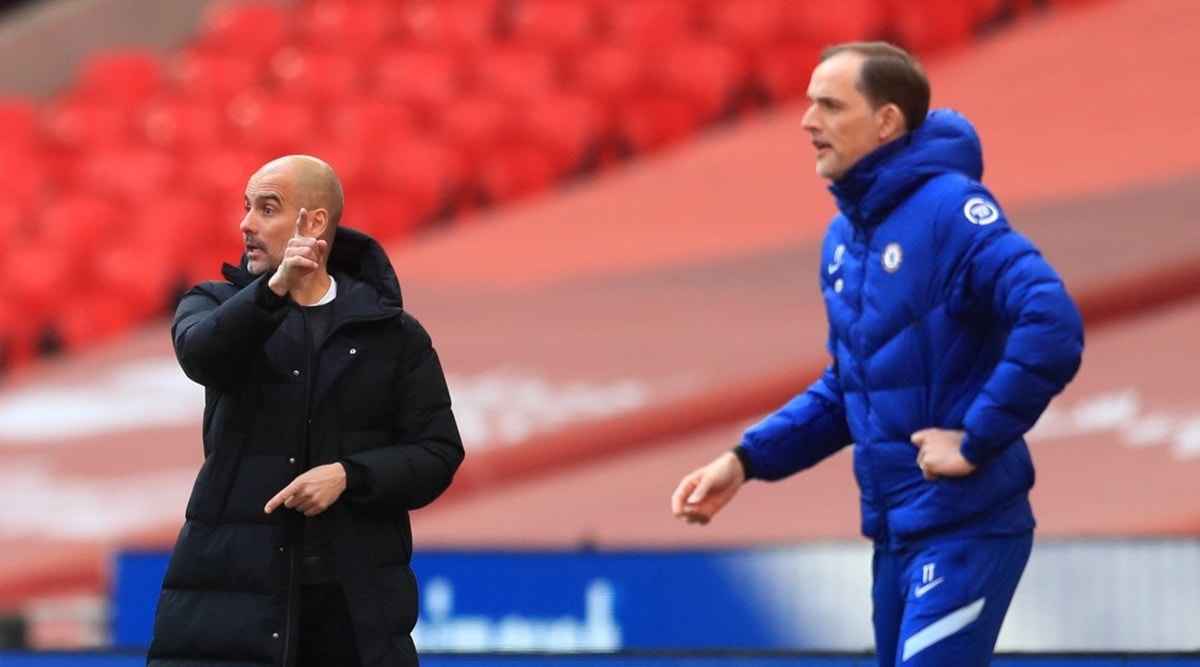
Before leaving Bayern Munich, Pep Guardiola was asked about his potential successor. Without any hesitation, he shot out: “Thomas, you have to bring him to Bayern,” he told the club’s management. By the time they met Thomas — Thomas Tuchel, that is, the Chelsea manager he would encounter in the Champions League final — he had already committed to Borussia Dortmund. But it showed how much Guardiola rated the German manager.
Theirs is a bond forged not so much on the field as it was on dinner tables at bars in Munich and Mainz, hours discussing football and football philosophies and dissecting tactics and formations, deep into the night, using salt and pepper mills like pawns on a chessboard. To quote the largely passive onlooker Michael Reschke – who has had a long career in football management and administration himself – who recounted one of their meetings to athletic.com: “It was like watching two grandmasters of chess, Fischer vs Spassky, locked in a battle of wits. Or Cicero and Socrates, discussing football philosophy.”
It gives an idea of the exchange between two great footballing intellectuals of this era, at contrasting spectrums of the footballing scale. A decorated player-manager and a failed-player-turned-bartender-turned-manager still cutting his teeth at the highest level.
Tuchel idolises Guardiola. In his early coaching days – he started out in his late 20s after an injury stalled his career – Tuchel used to save his money and fly to Barcelona to watch Guardiola marvel the world with butterfly football. He also read and reread all of Guardiola’s biographies or any insightful piece into the Catalan’s tactics and thought patterns. Guardiola, on the other hand, admired Tuchel’s bravado and steadfastness to an attacking philosophy during Bayern’s thrashing of Mainz in a Bundesliga match. “This is an interesting young coach. He has an idea,” Guardiola spoke glowingly of Tuchel.
Adherence to principles
Their ideologies are not the same — Tuchel never tried to merely copy Guardiola — but their unflinching faithfulness to their ideals is similar. Two deep and intense thinkers of the game, both are wedded to the ultra-fine details of the game. If Guardiola wants the grass at Etihad to be trimmed to a specific height, Tuchel makes hundreds of tactical diagrams and formation graphs before every game. Even before he assumed charge of Chelsea, he had studied their games and knew the minutest detail about every player in the squad. He knew what strategy or formation would work and what would not at Chelsea rather than learning on the go.
Both are tactical modernists, almost uber-nerds, capable of transforming a club with as much their tactical freshness as their man-management skills. In just five months, Tuchel has transformed a bedraggled side into a competitive firm. The list of players whose career he has revived is long. N’golo Kante had seemed lost since Maurizio Sarri repositioned him to a more attacking role, but Tuchel re-employed him back to his holding role, where he’s again thriving. Likewise, Antonio Rudiger is a revitalised presence at the back while the vaunted German pair of Timo Werner and Kai Havertz has begun to demonstrate the world-beating form they were touted to bring.
Tuchel not a copycat
The German is not as fixated with possession as Guardiola is. Rather, the stamp of his teams is their rapid transition from defence to attack, a typical German trait. In big games, he is often happy without possession (though his teams seldom sit too deep), but would press and counterattack with relish. The second legs of the ties against Madrid teams — Real and Atletico — were classic Tuchel. He made tight lines, congesting space, running hard, pressing relentlessly and bottlenecking them before launching blistering forays like most German teams or teams coached by Germans would. This could sometimes lead to long phases of sterile football, but it’s far from dour or defensive football. Guardiola is more of a romantic, someone not so much bothered about getting the job done, as about how it is accomplished. Not for him the tedium of smash-and-grab manoeuvres. He gets his kick from strategic outmanoeuvring.
The final blueprint
The Champions League final would be like a game of classical chess between two grandmasters, each move well-weighted and supremely crafted. A duel that could slow-burn and be decided by on-the-feet tactical ingenuity or a moment of pure genius. Tuchel has stunned Guardiola in the FA Cup semifinal as well as a freewheeling league game by exploiting the space left by City’s marauding full-backs, especially Joao Cancelo, and Guardiola would be wary of this threat. Tuchel too would be wary of this wariness of Guardiola. His insight and intuition. A tactical masterclass awaits, as might be a table in some corner of a bar in Porto for their football meditations.

